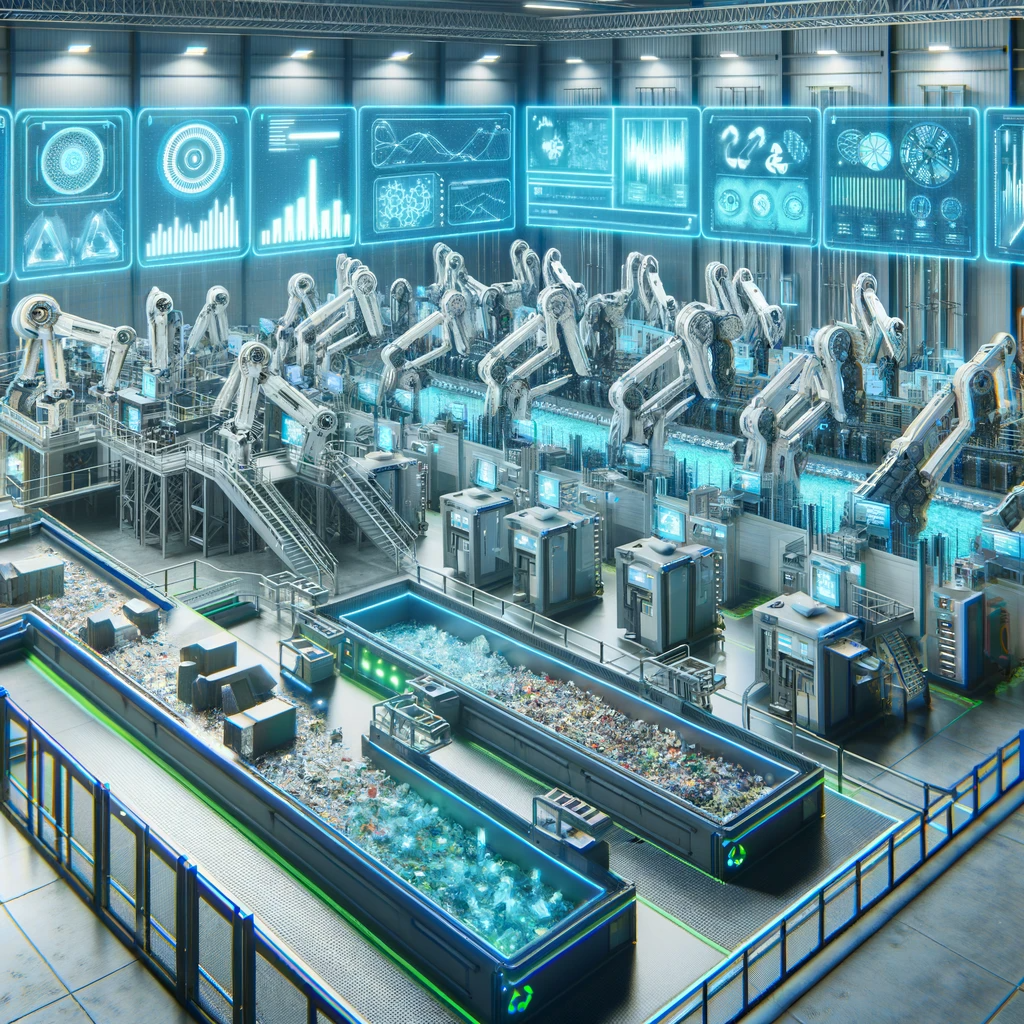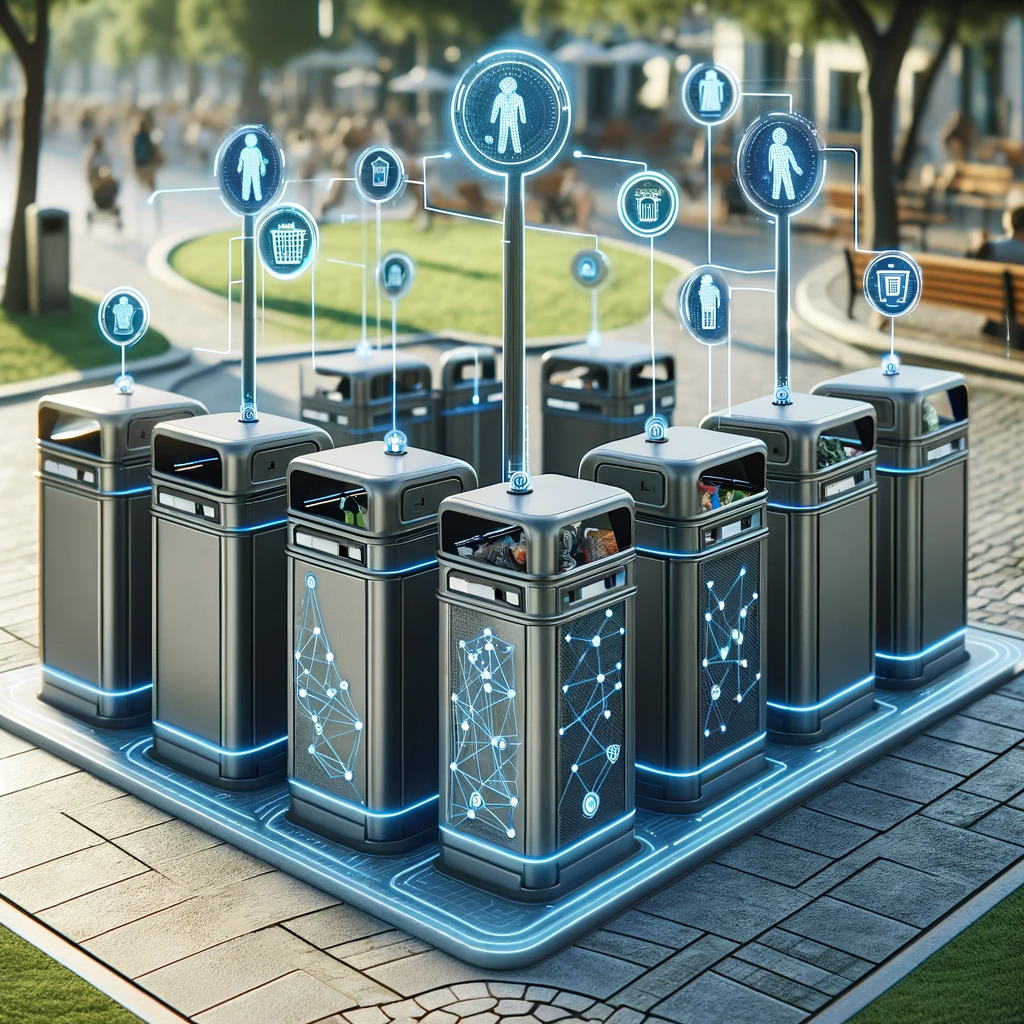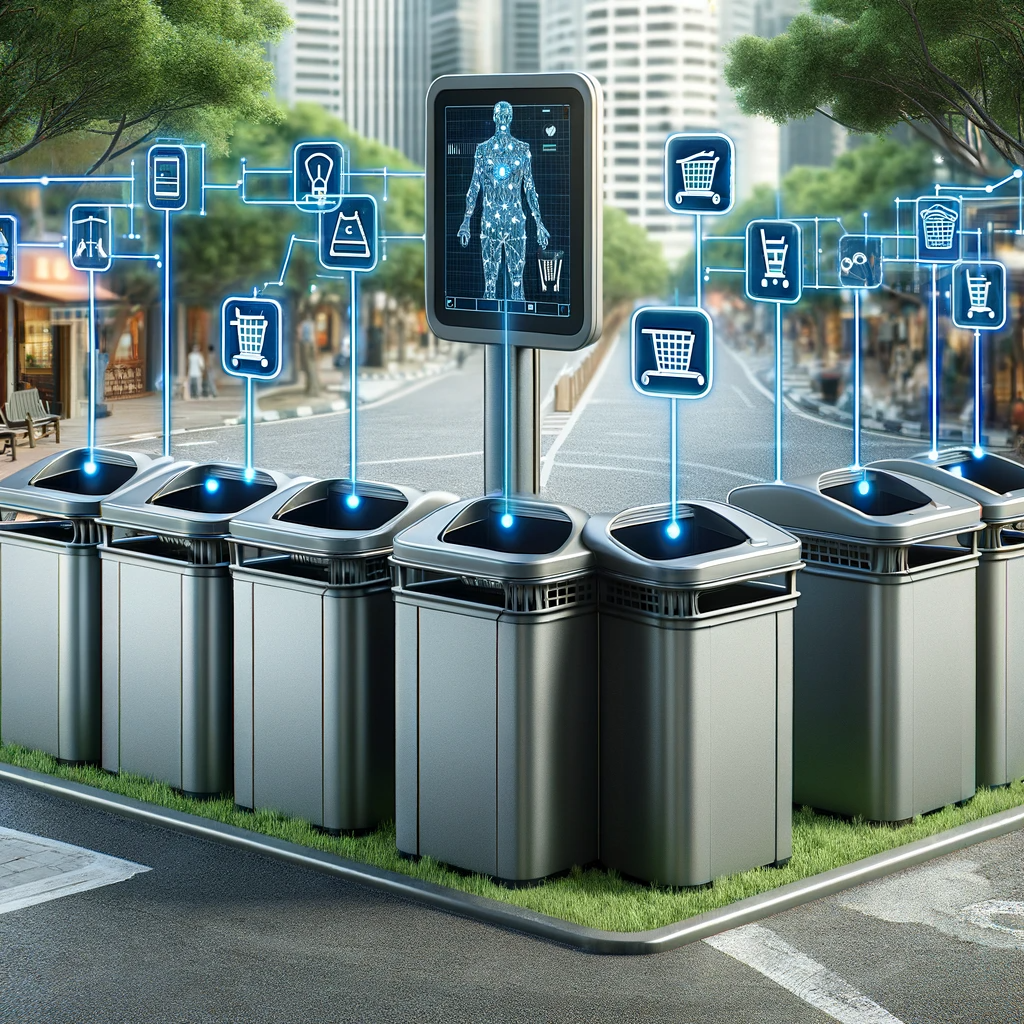Waste management and recycling are critical components of a sustainable future. As the global population continues to grow, so does the volume of waste generated, posing significant environmental and logistical challenges. In the pursuit of more efficient and environmentally friendly waste solutions, Artificial Intelligence (AI) has emerged as a game-changer. This article delves into the potential of AI in revolutionizing waste management and recycling processes, from optimized waste sorting to enhancing recycling efficiency and managing waste treatment facilities.
The Growing Waste Challenge
The world produces an astonishing amount of waste, with over 2 billion metric tons generated annually. Managing this waste is not just about preventing pollution; it’s about harnessing the value within discarded materials. Traditional waste management and recycling systems face limitations in handling the sheer diversity of waste streams, but AI offers a promising solution.
AI-Powered Waste Sorting: The First Line of Defense
One of the initial challenges in waste management is sorting different types of materials. Manual sorting is labor-intensive, prone to errors, and inefficient at handling the scale of waste generated in many urban areas. AI-powered waste sorting systems are changing the game.
Vision-Based Sorting
AI-equipped cameras and sensors can identify and sort materials at incredible speeds. These systems use machine learning algorithms to recognize various materials, such as plastics, glass, and metals, as they move along conveyor belts. The precision and speed of AI sorting reduce contamination in recycling streams, making the recycling process more effective.
Robotics in Sorting Centers
Robotic arms powered by AI can perform tasks that would be tiresome and monotonous for humans. These robots can pick and place objects with exceptional accuracy, further enhancing the sorting process. They are particularly useful for handling e-waste, which contains valuable materials but can be challenging to disassemble manually.

Predictive Analytics for Waste Collection
Efficient waste collection is crucial to prevent overflow and reduce environmental impact. AI can optimize waste collection routes, ensuring that trucks are sent where they are needed most.
Data-Driven Routing
AI algorithms analyze historical data, including waste generation patterns and traffic conditions, to determine the most efficient collection routes. By reducing travel time and fuel consumption, AI-powered routing lowers the environmental footprint of waste collection.
Predicting Overflow
Sensors placed in waste bins can detect when they are nearing capacity. AI processes this data to predict when a bin is likely to overflow, allowing waste management companies to schedule timely pickups and prevent littering.
Enhancing Recycling Efficiency
Recycling efficiency depends on both the quality of input materials and the effectiveness of recycling processes.
Materials Characterization
AI can assess the quality of recyclable materials and sort them based on their suitability for recycling. This ensures that only materials with the highest recycling potential are processed, reducing waste and optimizing resource utilization.
Process Optimization
AI can monitor and adjust recycling processes in real-time. For example, in a recycling plant, AI algorithms can optimize the settings of machines based on the type and condition of materials being processed, leading to higher efficiency and reduced energy consumption.
Waste Treatment Facility Management
Managing waste treatment facilities, such as incinerators and landfills, is a complex task. AI can play a pivotal role in streamlining operations and minimizing environmental impact.
Emissions Control
AI systems can continuously monitor emissions from waste treatment facilities and make real-time adjustments to ensure compliance with environmental regulations. This helps reduce air and water pollution.
Facility Optimization
AI can analyze data from waste treatment facilities to optimize operations. For example, it can predict equipment maintenance needs, improve waste compaction in landfills, and ensure the safe incineration of waste materials.
AI and Circular Economy
The integration of AI into waste management and recycling processes aligns with the principles of a circular economy. In a circular economy, resources are continually reused, reducing the need for new raw materials and minimizing waste generation. AI facilitates the efficient recovery of materials from discarded products and promotes their reuse, contributing to a more sustainable and circular approach to resource management.
Challenges and Considerations
While the potential benefits of AI in waste management and recycling are substantial, several challenges and considerations must be addressed:
Data Privacy and Security
AI systems rely on data, including information from sensors and cameras. Ensuring the privacy and security of this data is crucial, as it may include sensitive information about individuals and businesses.
Cost of Implementation
Deploying AI-powered waste management systems can be expensive, particularly for smaller municipalities and organizations. Finding cost-effective solutions and securing funding is essential.
Ethical Considerations
AI systems must be programmed and trained with ethical considerations in mind. Decisions made by AI, such as sorting materials or routing waste collection trucks, can have environmental and social implications that require careful consideration.

The Future of Sustainable Waste Management
As AI technologies continue to evolve and become more accessible, their role in waste management and recycling will likely expand. The optimization of waste sorting, collection, recycling, and waste treatment processes through AI-driven solutions will contribute to more sustainable practices and a cleaner environment.
The integration of AI into waste management represents a significant step towards a circular economy where resources are conserved, waste is minimized, and environmental impact is reduced. By harnessing the power of AI, we can address the growing waste challenge and move closer to a more sustainable and environmentally responsible future.
